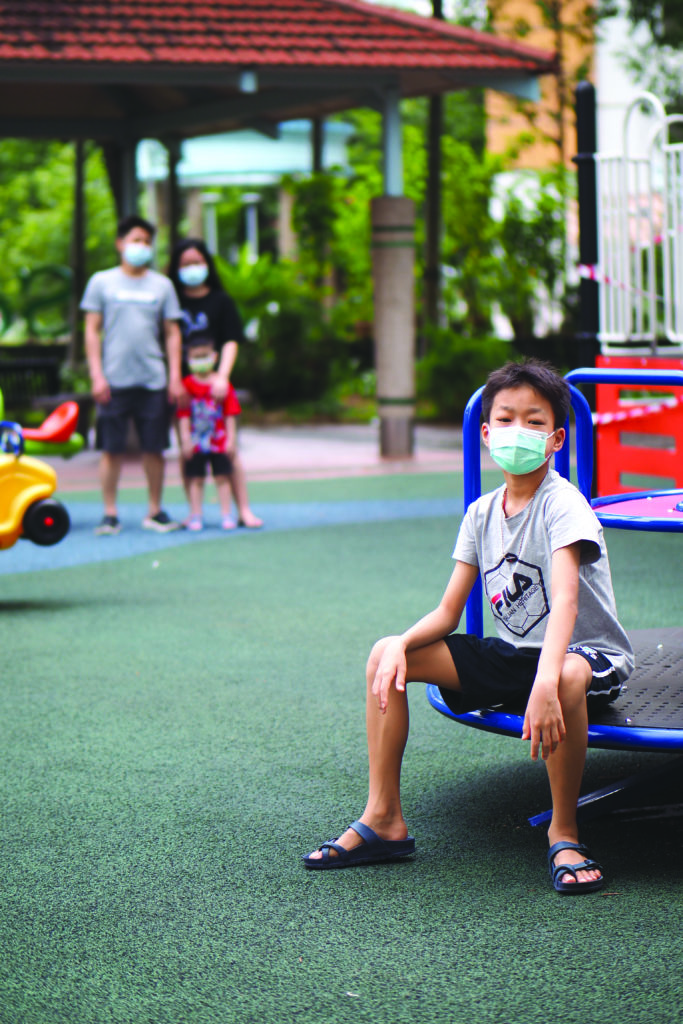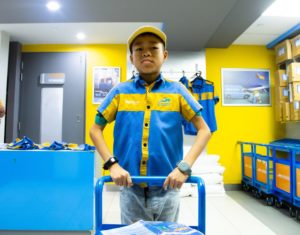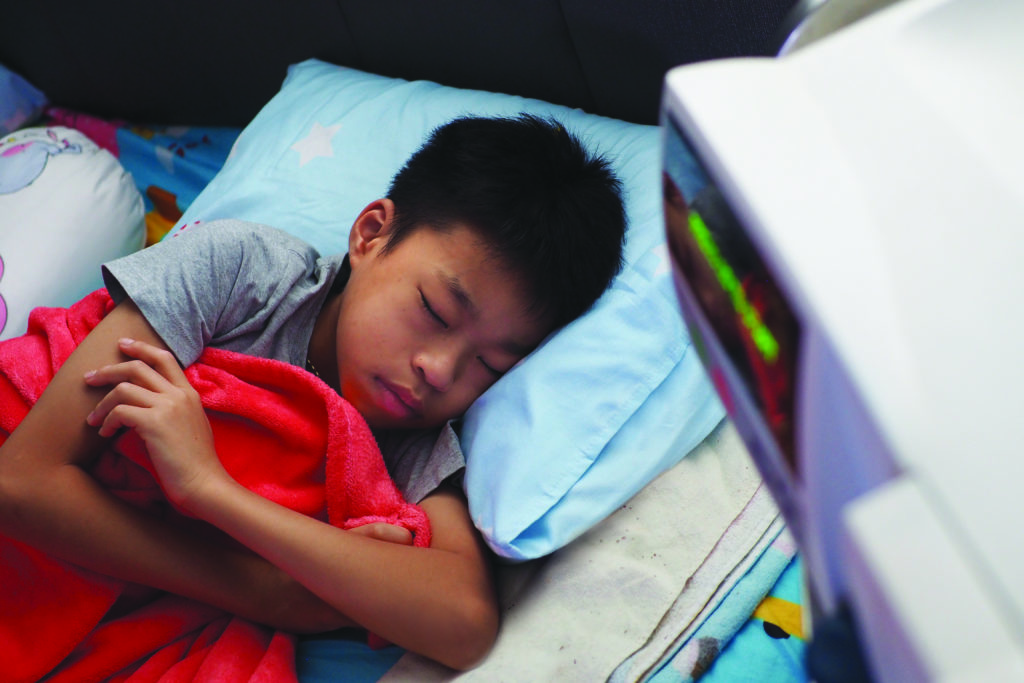 Cheerful and bubbly, 12-year-old Aw Wan Rong is like any other child but for one difference – he needs to rely on peritoneal dialysis daily for life.
Cheerful and bubbly, 12-year-old Aw Wan Rong is like any other child but for one difference – he needs to rely on peritoneal dialysis daily for life.
A permanent tube is surgically inserted into Wan Rong’s abdomen which allows the dialysis solution to flow into his abdominal cavity, draws out the toxins from the numerous blood vessels in the abdominal lining, then drains the fluid out. He does the dialysis overnight with the aid of a machine over a 10 to 12-hour period.
The middle child with two other siblings, Wan Rong’s troubles began one day when he was seven. “I was out with my family when my face started to swell,” he recalls. His parents immediately rushed him to KK Women’s and Children’s Hospital and then to the National University Hospital (NUH) where Wan Rong underwent multiple tests and was eventually diagnosed with kidney failure.
His parents’ world came crashing down, but Wan Rong was oblivious to how serious his condition was.
“Being as young as I was when diagnosed, I thought I was just merely unwell and will recover after being given medication,” said Wan Rong.
Under the patient guidance, counselling and aid from the doctors and medical social workers at Shaw-NKF Children’s Kidney Centre in NUH, Wan Rong’s parents opted him to undergo Automated Peritoneal Dialysis (APD), one of two forms of peritoneal dialysis, which is done at home overnight through a machine. “It’s convenient and flexible. In the day time, he can still go to school,” explains his father, Mr Aw Teck Chian.

Given his tender age when he was started on APD, Wan Rong’s parents initially administered his treatments, eventually transitioning the responsibility to him as he grew older. Since early last year, Wan Rong has been confidently carrying out APD on his own daily.
On a typical week day, Wan Rong begins his dialysis treatment at round 5pm, where he will retreat into his room to prepare the dialysis solution and connect the tubes to the dialysis machine. After which he will go about his evening such as completing his homework or watching the television with the dialysis machine, sitting atop a moveable trolley, accompanying him wherever he goes. He goes to bed at 9pm and wakes up around 5am the next morning for school. He also has to consume multiple medications daily.

But because he needs to dialyse every night, it also meant that Wan Rong is unable to have sleepovers at his friends’ homes or to go on holidays. Hence, he looks forward to the annual Shaw-NKF Children’s Kidney Centre Annual Camps held in December. His voice lit up as he shared about the time when he and other child beneficiaries went for a 3-day overnight camp and visited the now-defunct KidZania Singapore. “I had a lot of fun at KidZania! I enjoyed taking on the role of a courier, delivering packages and getting people to sign for them. My friends and I also made and ate burgers!” he reminisces. “We also got to sleep in air-conditioned rooms during the 3-day camp!” he cheekily adds.
However, due to the current Covid situation, virtual camps on Zoom have replaced physical camps. Wan Rong misses the camps terribly as it was a rare opportunity for him to stay over with his friends with arrangements made for the dialysis solutions, machines and tubes to be transported to the camp so that the children can undergo their dialysis uninterrupted.
Wan Rong recently sat for his Primary School Leaving Examination (PSLE) and is currently on the waiting list for a kidney. Mr Aw is grateful for the subsidies that he has received from NKF for his son’s treatments, the help and support rendered by the medical and allied health team at NUH. He is also consoled by his son’s maturity and sensibility.
“It’s every parent’s wish for their child to be healthy. Even though Wan Rong is plagued by kidney failure, he is more mature compared to his peers, able to understand his condition and dutifully endured the treatments.”






